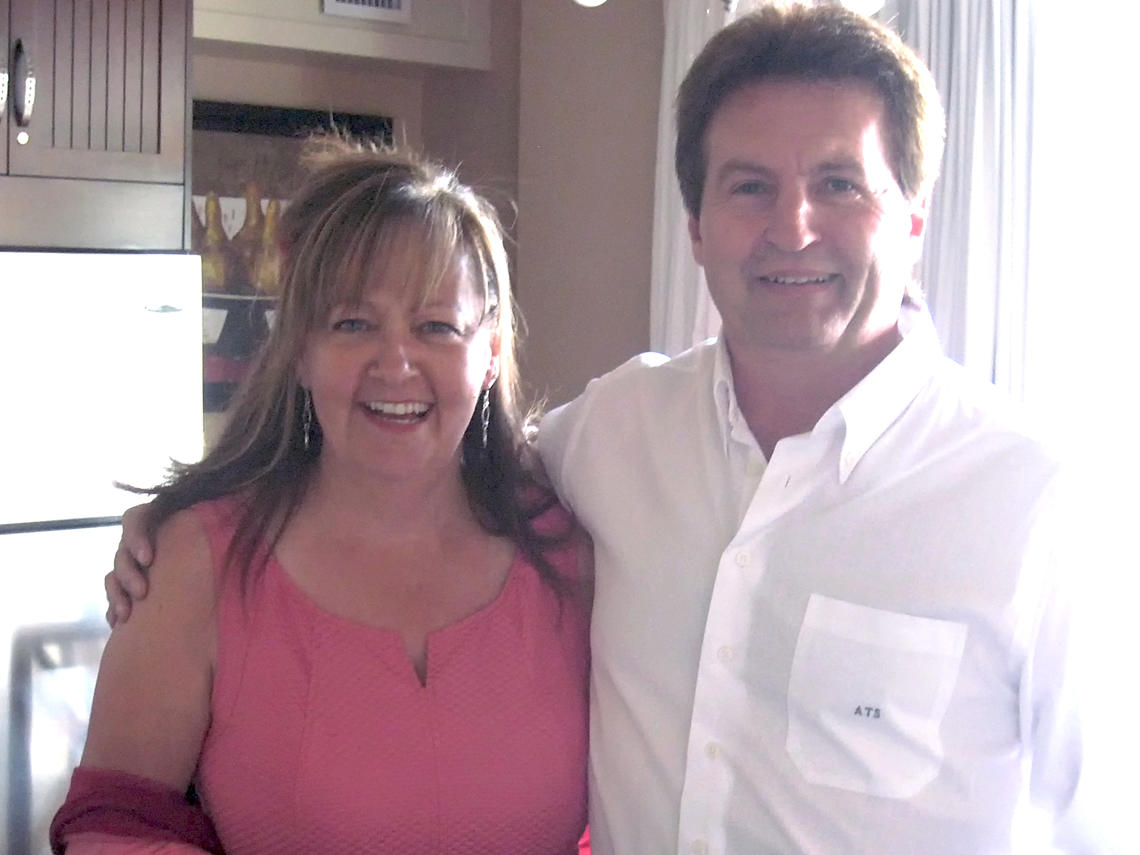
Donna and Andy Sharman have taken peer supporter training so they can support other stroke victims.
June 17, 2014

Donna and Andy Sharman have taken peer supporter training so they can support other stroke victims.
On November 9, 2013, Donna Sharman’s life changed forever. On a quiet Saturday morning, Donna and her husband Andy were at home when she suddenly collapsed on the kitchen floor. Although she was not aware of any signs or symptoms leading up to this moment, Donna was having an ischemic stroke, caused when a blood clot blocks an artery to the brain.
Andy immediately called EMS and Donna was rushed to the Foothills Hospital where a full stroke team, led by Dr. Michael Hill of the Calgary Stroke Program and the University of Calgary’s Hotchkiss Brain Institute (HBI), was waiting for her.
Hospital visit leads to participation in research trial
When they arrived at the hospital, Dr. Hill told Andy that Donna’s stroke was very serious. He explained that Donna was an ideal candidate for a clinical research study exploring ways to help restore blood flow to the brain. Given the seriousness of his wife’s condition, Andy believed this trial might be the key to saving Donna’s life.
And that’s exactly what it did.
“I have learned firsthand of the importance of research,” says Donna. “It’s imperative that science continues to move forward. Without the procedure I would not have survived or at best would have been significantly incapacitated.”
Hill and his collaborators in the HBI-supported ESCAPE study hypothesize that inserting a small stent-like device in people who have had this type of stroke is more effective than routine medical care. The researchers aim to recruit 400 patients in Canada, the U.S. and Europe by early next year and expect results of the study to be ready by the fall of 2015.
The funding announced today for the University of Calgary’s Cumming School of Medicine will allow more research like the ESCAPE study that made such a difference in Donna’s life. When Donna came out of surgery, she was overwhelmed with gratitude for the service provided to her by Hill and his team.
A speedy recovery
“The doctors and nurses were amazing and the amount of care and concern we were shown was incredible,” says Donna. “We always felt our best interests were taken care of and we felt safe, knowing we were in very capable hands. I am thankful for the research that has enabled the doctors and staff to conduct such procedures.”
As early as the first night, Donna felt motivated to start her recovery. She challenged herself by trying to remember telephone numbers, passwords for computers, and even the names of the nurses on shift. Her rehabilitation was speedy and thanks to the Foothills Hospital Early Release Program, she was able to go home after only five days in the hospital.
“I felt that the care I was given inspired me and gave me so much hope for my recovery. My doctor always had time to give the answers he could. It was like he always believed in me.”
Reaching out to support other stroke victims
Donna was inspired by the level of service and believes that this care should be the standard available to all. As a result of this experience, Donna and Andy have recently taken peer supporter training through the I.N.S.P.I.R.E.S program at Foothills Hospital so that they can meet and support other stroke victims and their caregivers.
Donna’s recovery is one example of the impact of the HBI and the University of Calgary’s commitment to research and innovation, and she continues to do what she can to help. Donna volunteers her time with numerous studies dedicated to the advancement of stroke research.
“I want to give back in any way that I can,” she says. “I hope that by participating in studies, I am doing my part to help move this area of research forward. It is the least I can do.”